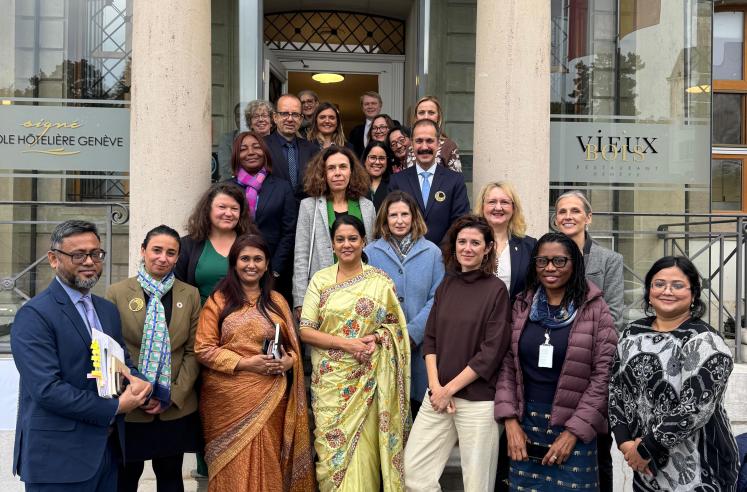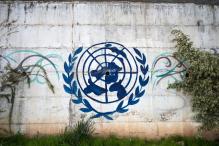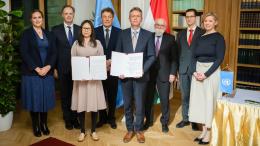14 October 2025 | Geneva, Switzerland — The United Nations University Institute for Water Environment and Health supported the Women in Water Diplomacy Network (WWDN) high-level dialogue, convened with the support and in collaboration with the Government of Slovenia and the UNECE Water Convention, celebrating Bangladesh’s accession to the Water Convention and the country’s commitment to advancing gender equality in water diplomacy.
Held under the theme “Celebrating Bangladesh’s Progress in Transboundary Water Cooperation: Advancing Gender Equality in Water Diplomacy,” the event brought together women leaders, diplomats, and experts working at the intersection of water, peace, and security in Geneva and beyond.
The Network welcomed Honourable Rizwana Hasan, Adviser to the interim government of Bangladesh and Minister of Environment, Forest and Climate Change, as Guest of Honour. Ms. Hasan’s keynote remarks highlighted Bangladesh’s historic accession to the Water Convention and underscored the importance of inclusive and cooperative approaches to transboundary water governance.
“Women stand at the frontlines of the water crisis — investing countless hours collecting water, safeguarding their families’ health, and sustaining local economies. Empowering women in water decision-making is not only a matter of equality, it is essential for the prosperity and resilience of our communities,” said Honourable Rizwana Hasan.
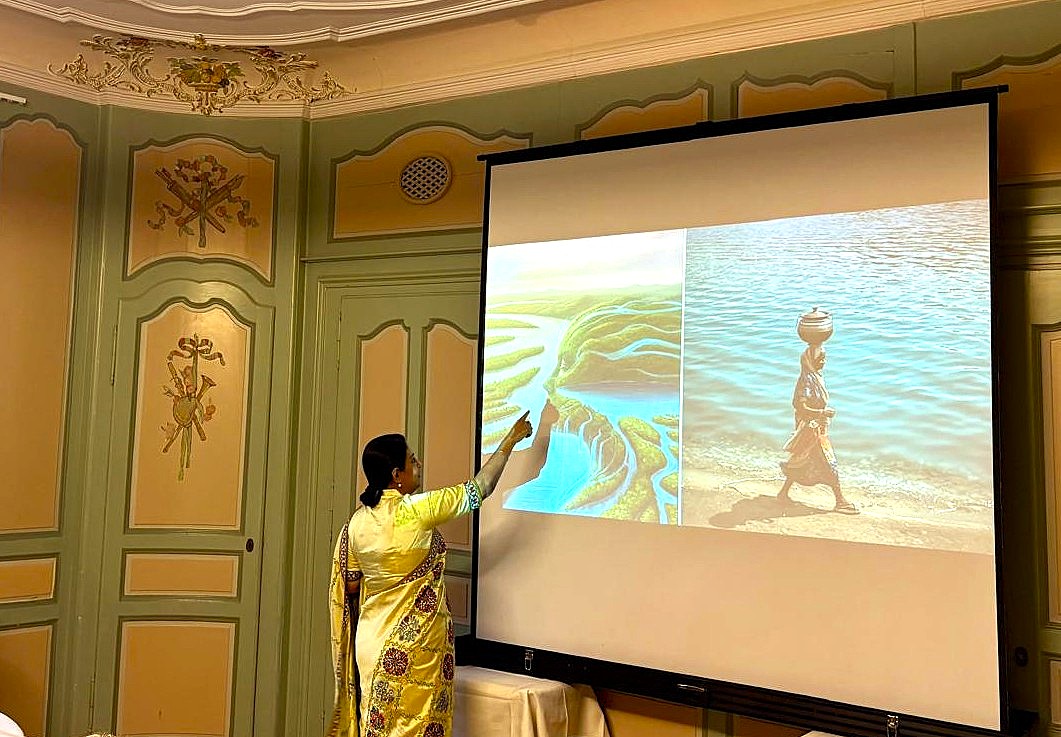
Water insecurity is intensifying in many conflict-affected regions, exacerbating inequalities and disproportionately impacting women and young people. Despite their leadership and technical expertise, women remain underrepresented in water and climate decision-making processes. Research shows that the meaningful participation of women in peace and governance processes enhances the durability and inclusiveness of outcomes. Women water diplomats often play critical bridging roles across communities, sectors, and borders, building trust and cooperation in challenging contexts.
Opening remarks were delivered by Maria Amakali, Member of the Global Leadership Council of the Women in Water Diplomacy Network and Acting Deputy Executive Director for the Department of Water Affairs at the Ministry of Agriculture, Fisheries, Water and Land Reform of Namibia, and Ambassador Tanja Miškova, Ambassador-at-Large for Water Diplomacy at the Ministry of Foreign and European Affairs of Slovenia.
“As women in the water sector, we know first-hand the power of inclusion. We know that when women sit at the negotiation table, the dialogue becomes more comprehensive, the solutions more equitable, and the outcomes more sustainable. Yet, too often, women remain under-represented in decision-making spaces, especially in transboundary water management,” said Maria Amakali.
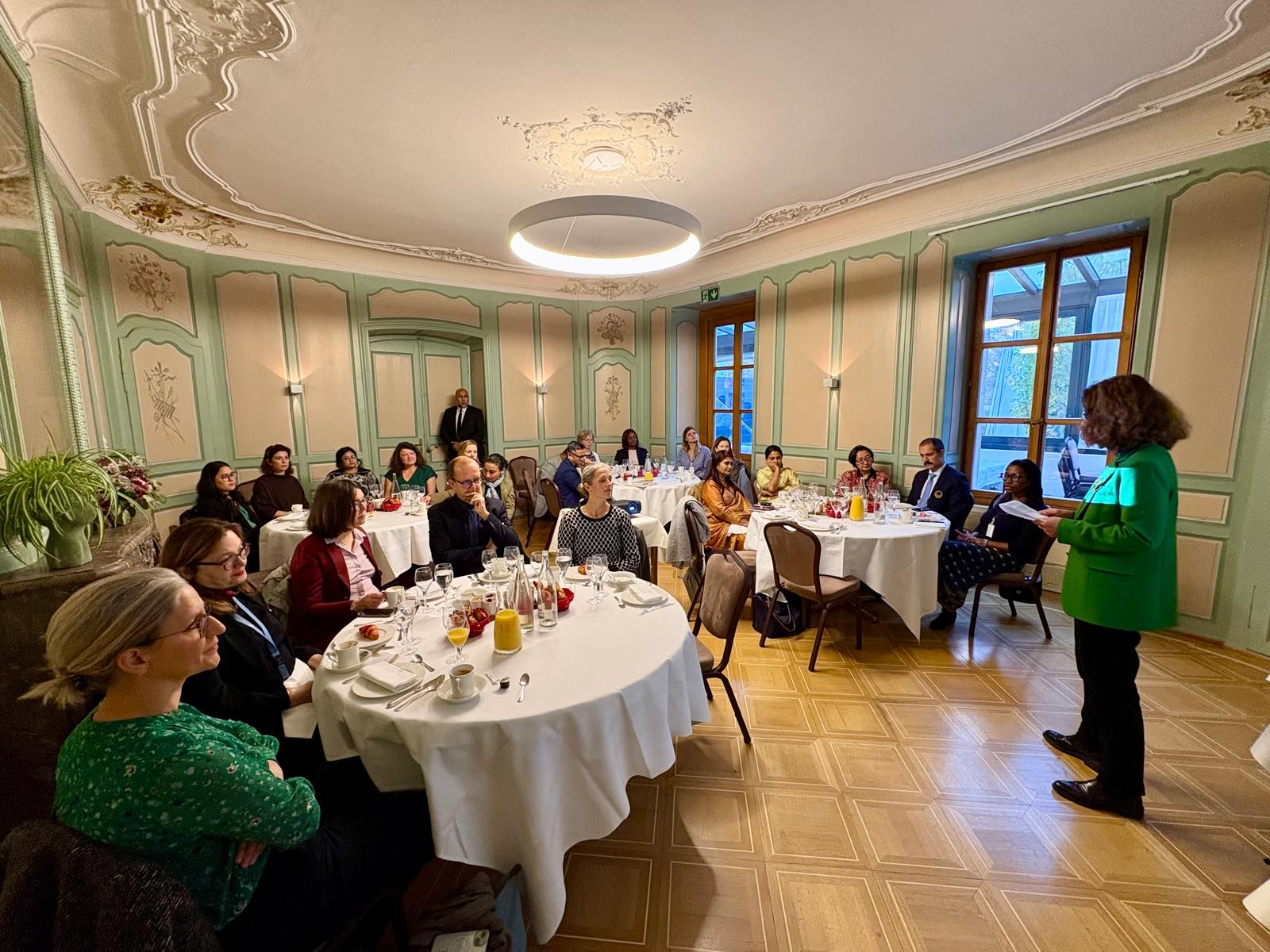
The session was moderated by and featured contributions from Sogol Jafarzadeh, UN and Government Relations Coordinator of UNU-INWEH and Women in Water Diplomacy Network Project Support Team, who presented the Network’s recent achievements and upcoming engagement plans toward the 2026 United Nations Water Conference. Sonja Koeppel, Secretary of the Water Convention (UNECE), and Aleš Bizjak, Chair of the Bureau of the Water Convention and representative of the Ministry of Natural Resources and Spatial Planning of Slovenia, outlined opportunities to further strengthen women’s voices in transboundary water cooperation.
“Women are not just impacted by water insecurity; they are driving solutions. When women are meaningfully included in transboundary water diplomacy, cooperation becomes more just, resilient, and lasting. Inclusive water diplomacy is not only about fairness; it’s about effectiveness” noted Sogol Jafarzadeh during her presentation.
The gathering was organized on the margins of the 6th Joint Meeting of the Working Group on Integrated Water Resources Management and the Working Group on Monitoring and Assessment of the UNECE Water Convention,13–15 October 2025.
The event concluded with reflections from participants and closing remarks by Prof. Kaveh Madani, Director of the United Nations University Institute for Water, Environment and Health (UNU-INWEH), who emphasized the indispensable role of women in shaping sustainable and peaceful water futures.
About Women in Water Diplomacy Network:
The Women in Water Diplomacy Network (WWDN) is a community of practice comprised of both formal and informal women water diplomats, decision-makers, and experts, representing a wealth of collective experience and expertise with focus on shared waters with focus on water insecure and conflict sensitive regions of the world. Originating in the Nile Basin in 2017, the Network is now a global community of women water leaders and allies working collectively to strengthen women’s leadership in transboundary water decision making with support from a global coalition of partners and member communities in the Nile, Central Asia-Afghanistan, Southern Africa, North America, the South Caucasus and elsewhere. For more information see: Women in Water Diplomacy Network: Overview | LinkedIn

